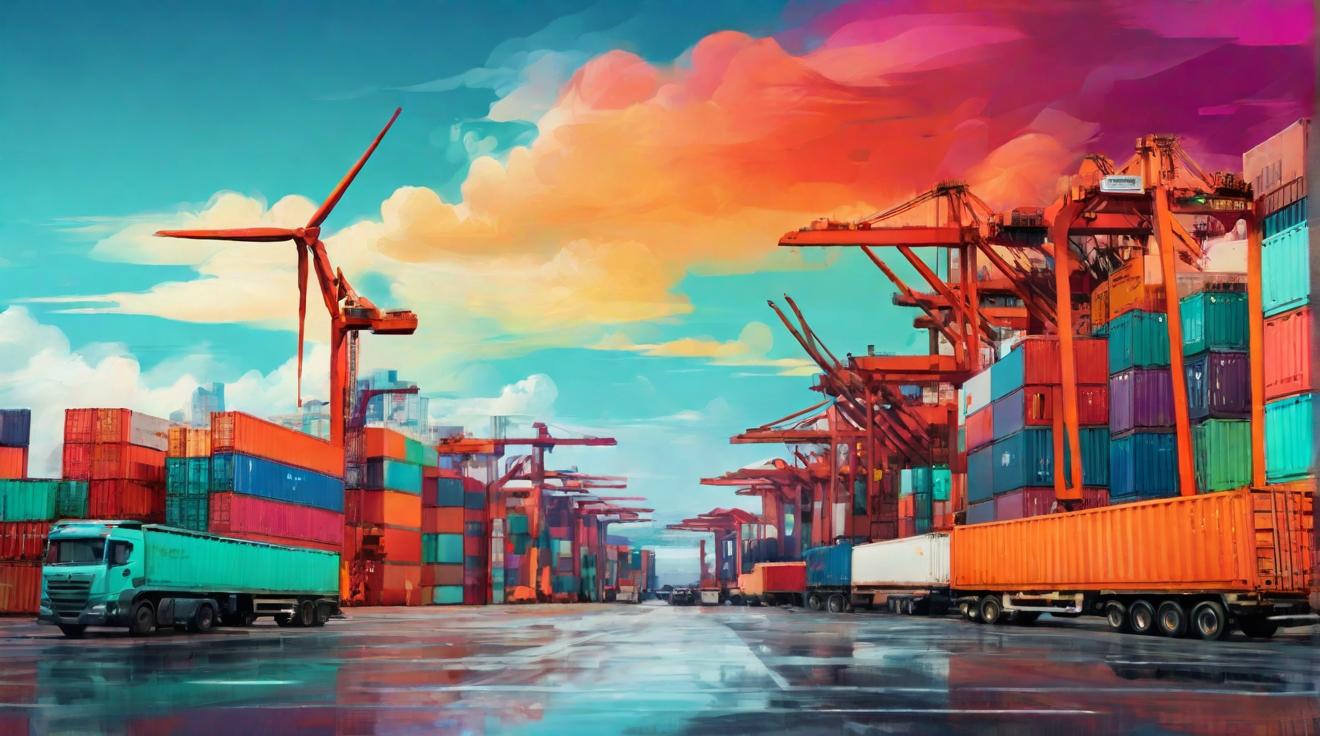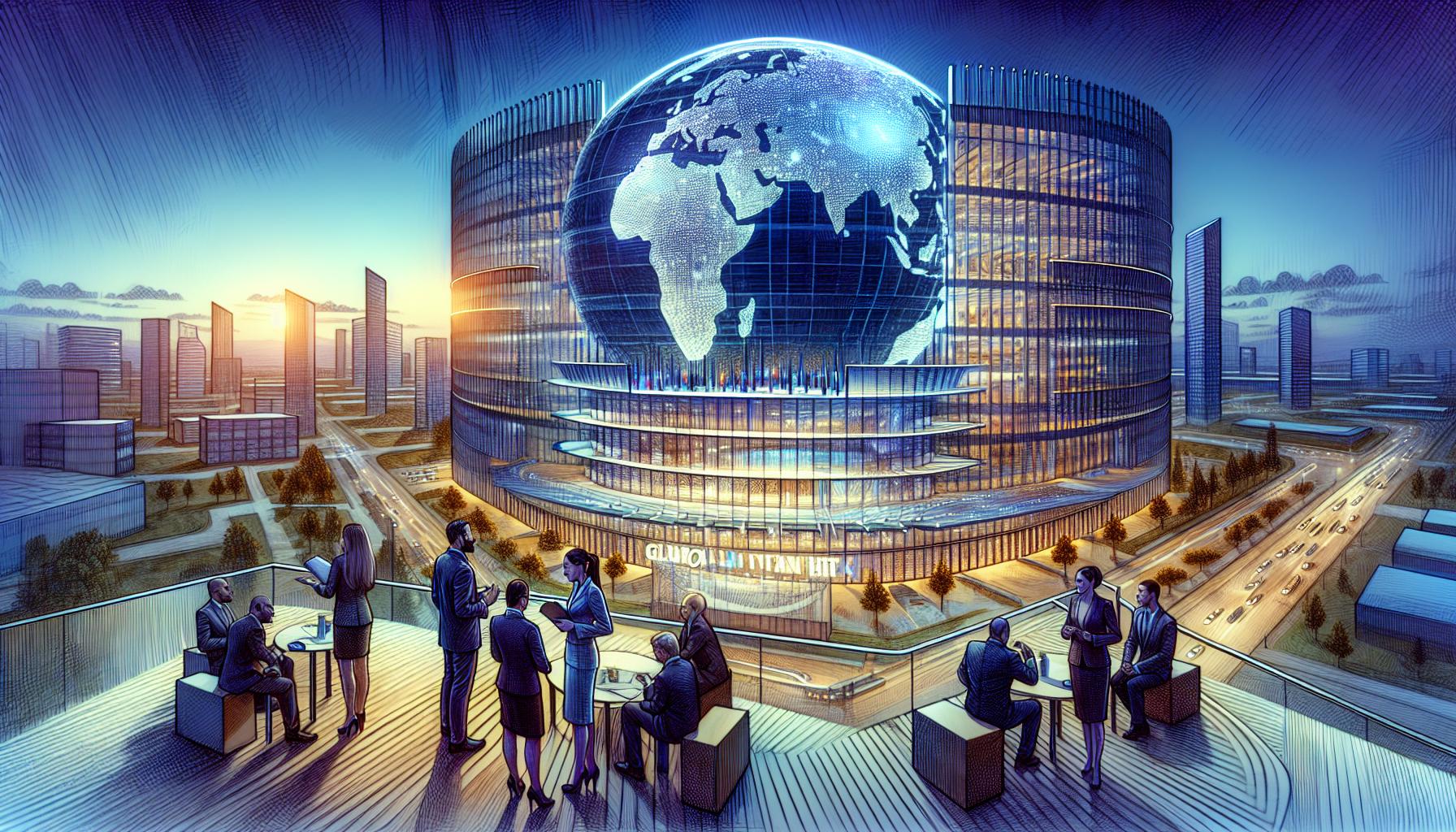The Critical Role of Decarbonized Supply Chains in the Climate Crisis
Carbon-neutral supply chains are paramount in the fight against the climate crisis. A World Economic Forum report reveals a staggering fact: just eight supply chains are responsible for more than 50% of global CO2 emissions. Yet, the solution to decarbonize offers an economically feasible path, increasing end-consumer costs by merely 1-4% for various everyday items. This finding underscores the potential for significant environmental improvements with minimal economic impact, highlighting a key opportunity for businesses and consumers alike.
The journey to slash supply chain emissions begins with enhanced logistics. However, this sector faces its own challenges; it's characterized by its complexity and inefficiency, with outdated processes contributing to excessive fuel, resource, and material waste. Specifically, transport-related greenhouse gas emissions account for over 27% of the EU’s carbon footprint, with a considerable share emanating from heavy-duty trucks. The scale of this issue points to a critical need for transformation within the logistics sector to mitigate its environmental impact.
Despite these obstacles, there's a silver lining. Innovations in logistics present an untapped wellspring for sustainable improvements. XPRESS Ventures is at the forefront, forging partnerships with logistics startups focused on enhancing industry sustainability and minimizing waste. Through a combination of venture capital insight and logistical expertise, this firm is driving a new era of supply chain efficiency.
Navigating Challenges and Unleashing Potential in Log-tech
The log-tech sector, however, is not without its hurdles. A declining economy, uncertain global supply chain conditions, and a lukewarm investment climate for climate technology pose significant challenges. Moreover, high energy prices and barriers to market entry deter straightforward logistic solutions. Yet, despite such obstacles, the prospect for impactful advancements remains vibrant, offering fertile ground for investors eager to drive meaningful change.
Innovative climate tech solutions have emerged as beacons of hope within this landscape. These include software for optimizing reusable systems, novel delivery pick-up points to mitigate last-mile delivery effects, and a RetailTech startup that bridges local retail inventory with climate-neutral delivery services. These advancements signify a pivot towards high-tech interventions as critical enablers in the transition towards sustainable logistics.
Looking ahead, the focus is on leveraging software to penetrate deeper into supply chains, realizing end-to-end sustainable practices, enhancing supply chain data governance, and deploying AI-enabled vision systems. For logistics industry players striving to keep pace with rapid changes, adopting a mindset that marries venture capital acumen with logistical prowess is indispensable.
Despite waning investment in climate tech, the pressing demand for market-driven solutions and entrepreneurial innovation in this space is more apparent than ever. It represents a burgeoning arena ripe with opportunities for investors to garner substantial returns while contributing to a cause crucial for future generations. The imperative to act swiftly and decisively in fostering sustainable supply chains has never been more urgent or clear.
Analyst comment
Positive news.
As an analyst, the market for sustainable supply chains is expected to grow as businesses and consumers prioritize decarbonization. Innovations in logistics, such as partnerships with startups and advancements in climate tech solutions, offer opportunities for investors to drive meaningful change and generate substantial returns. However, challenges like a declining economy and high energy prices need to be navigated. Overall, the market for sustainable supply chains is promising, but investment and adoption of technology will be crucial for success.













